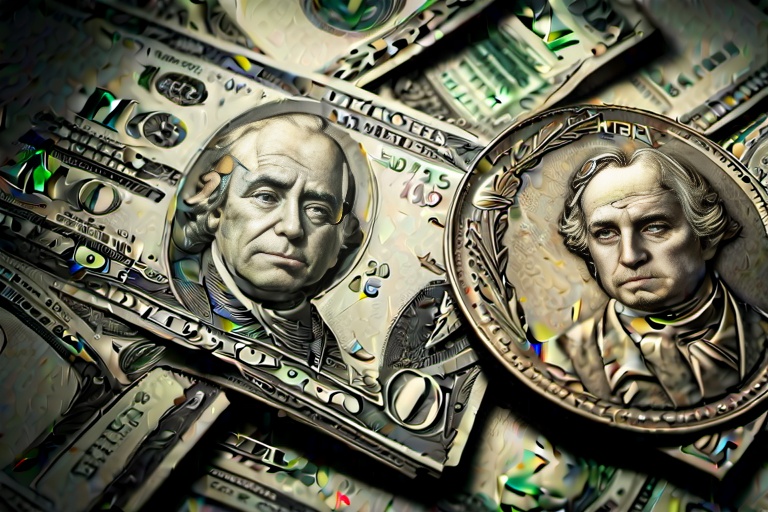Coin collecting is an enthralling pursuit that has enchanted people across the globe for centuries. Steeped in history, it offers a distinctive combination of historical insight, artistic appreciation, and potential financial reward. This entrancing hobby allows individuals to hold tangible pieces of heritage in their hands, creating a bridge to eras long past. Beyond personal satisfaction, coin collecting can translate into shrewd investment, provided it is undertaken with knowledge and care. Moreover, it can reflect a sense of national pride, as collectors cherish coins that symbolize their country's milestones and sovereignty.
Coin collecting is an enthralling pursuit that has enchanted people across the globe for centuries. Steeped in history, it offers a distinctive combination of historical insight, artistic appreciation, and potential financial reward. This entrancing hobby allows individuals to hold tangible pieces of heritage in their hands, creating a bridge to eras long past. Beyond personal satisfaction, coin collecting can translate into shrewd investment, provided it is undertaken with knowledge and care. Moreover, it can reflect a sense of national pride, as collectors cherish coins that symbolize their country's milestones and sovereignty.
The Origins of Coin Collecting
The origins of coin collecting are as ancient as the currency itself. Initially, coins were valued primarily for the precious metals they contained. With time, their artistic and historical significance gained recognition. In ancient societies such as Rome and Mesopotamia, coins became objects of study and curation. They were appreciated as miniature works of art, bearing witness to the cultures and political environments from which they emerged.
During the Renaissance, the allure of coin collecting spread among the elite, with monarchs and nobles assembling vast troves of coins as tokens of sophistication and power. Petrarch, a luminary of Italian scholarship and poetry, is often lauded as one of the progenitors of coin collecting for his passionate pursuit of ancient specimens. This devotion to collecting earned it the moniker "Hobby of Kings."
The Enlightenment era brought a methodical approach to the hobby. Numismatics, or the study of currency, solidified as an academic field. The burgeoning middle class took up collecting coins as both a cultured pursuit and a demonstration of prosperity. Coin shows, trade organizations, and governing bodies gained prominence, further propelling the hobby's accessibility and popularity.
Evolution of Coin Collecting
By the 19th and 20th centuries, the spectrum of coin collecting had broadened to encompass not only antiquated coins but also exotic and foreign currencies. In 1962, the passion for coin gathering reached a new zenith with the inaugural international coin collector convention, heralding coin collecting's status as the "King of Hobbies."
Modern enthusiasts collect coins for numerous reasons. Some seek the simple joy of completing a collection, while others, motivated by investment potential, regard coins as commodities, monitoring market fluctuations to predict gains in value. Then there are those driven by patriotic sentiment, collecting coinage that commemorates pivotal chapters in their nation's story.
Different Collectors, Different Motives
The world of coin collecting is a mosaic of diverse interests and strategies. There are the generalists, those who cherish coins from all corners of history and geography. Specialists, meanwhile, refine their collections according to a particular era, theme, or design. Both groups are pivotal, serving as custodians of history and heritage.
Investors or speculators may target bulk purchases or seek out coins based on their metal content, while others might inherit collections, growing into the hobby as they appreciate the legacy entrusted to them. Some collections are initiated by accidents of inheritance, sparking a newfound interest as the accidental collector learns about the field of numismatics and the treasures within.
Assessing Value and Quality
In coin collecting, the condition of a coin—its grade—is a critical determinant of its value. Coins in prime condition, with minimal signs of wear or damage, can command steep premiums over those in lesser states of preservation. Grading systems have evolved to meticulously describe a coin's condition, considering factors such as wear, cleaning, and any damage that might impact its appeal and monetary worth.
With the advent of coin certification services, collectors can obtain standardized evaluations of coins, ensuring their condition and authenticity. Two of the most esteemed services in the U.S. are the Professional Coin Grading Service (PCGS) and the Numismatic Guaranty Corporation (NGC). They offer expertise and reassurance, though the grading process remains somewhat subjective, and opinions on the value of "slabbing" coins can vary.
Clubs and Communities
Collector clubs enrich the hobby, offering venues for enthusiasts to share knowledge, engage in commerce, and celebrate their collections. Both online and offline, these communities are vital for fostering connections, enjoying exhibitions and auctions, and broadening one's collecting horizons.
The Past and Future of Coin Collecting
Looking back, prominent figures like Emperor Maximilian and Louis E. Eliasberg exemplify the prestige and aspiration that coin collecting can embody. For those considering investment, it's pivotal to recognize that a coin's value can be influenced by rarity, historical context, and market demand, all factors best understood with the guidance of professional grading services.
In the current era, coin collecting is experiencing a substantial resurgence. It's a gateway into different cultures and bygone times, an educational hobby that can yield significant financial dividends for the astute investor. From hobbyists to historians, the appeal is universal, drawing participants into a world where ancient artistry and rich histories mingle with contemporary enthusiasm and connectivity.
In summary, coin collecting is more than just a pastime; it is a window to the world's history, an educational journey, and an opportunity to conserve a piece of our shared human story. For enthusiasts, from novices to seasoned numismatists, there's always a new discovery around the corner in the world of coin collecting—a community waiting with open arms to welcome curious minds into the fold.
Information for this article was gathered from the following source.


